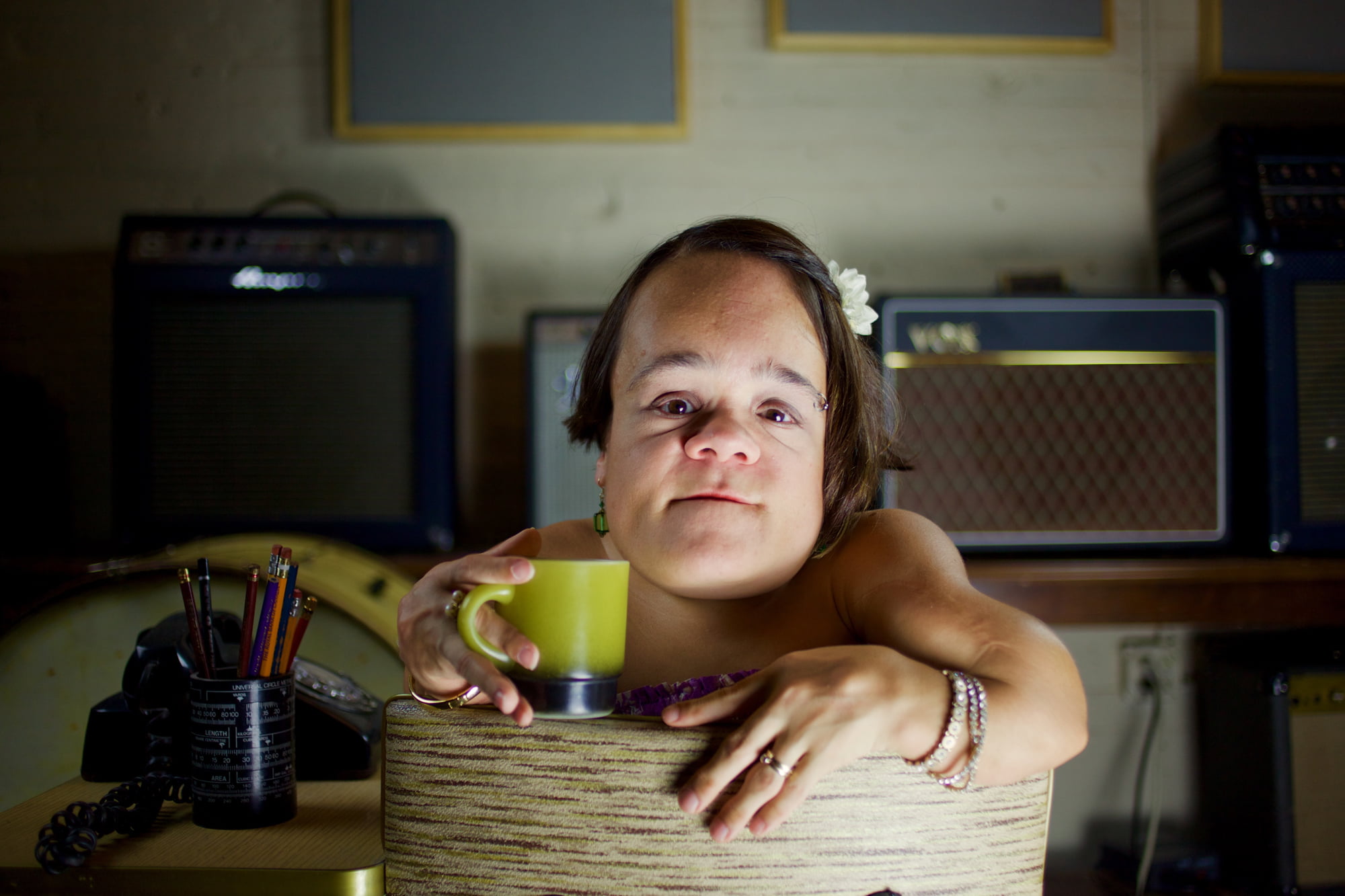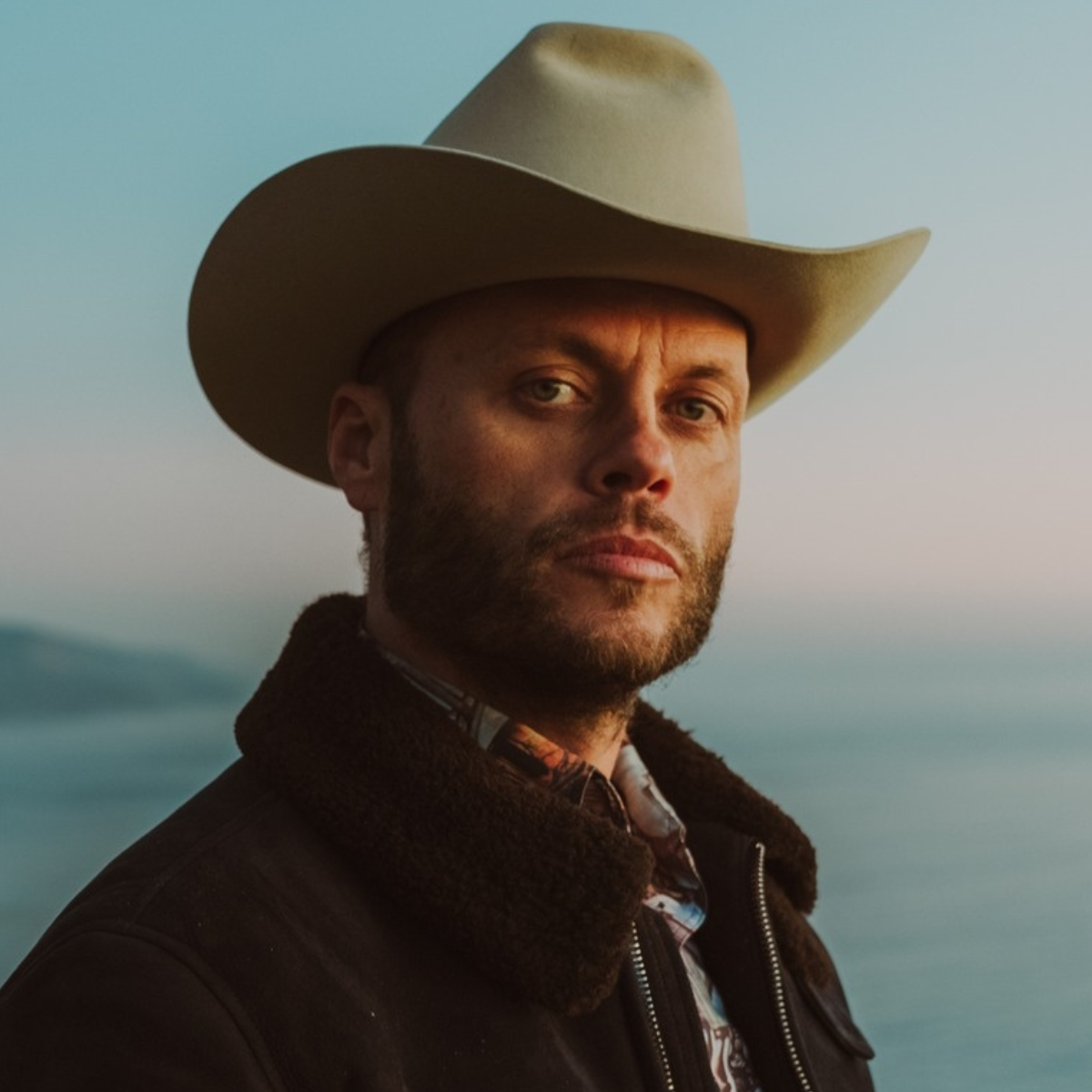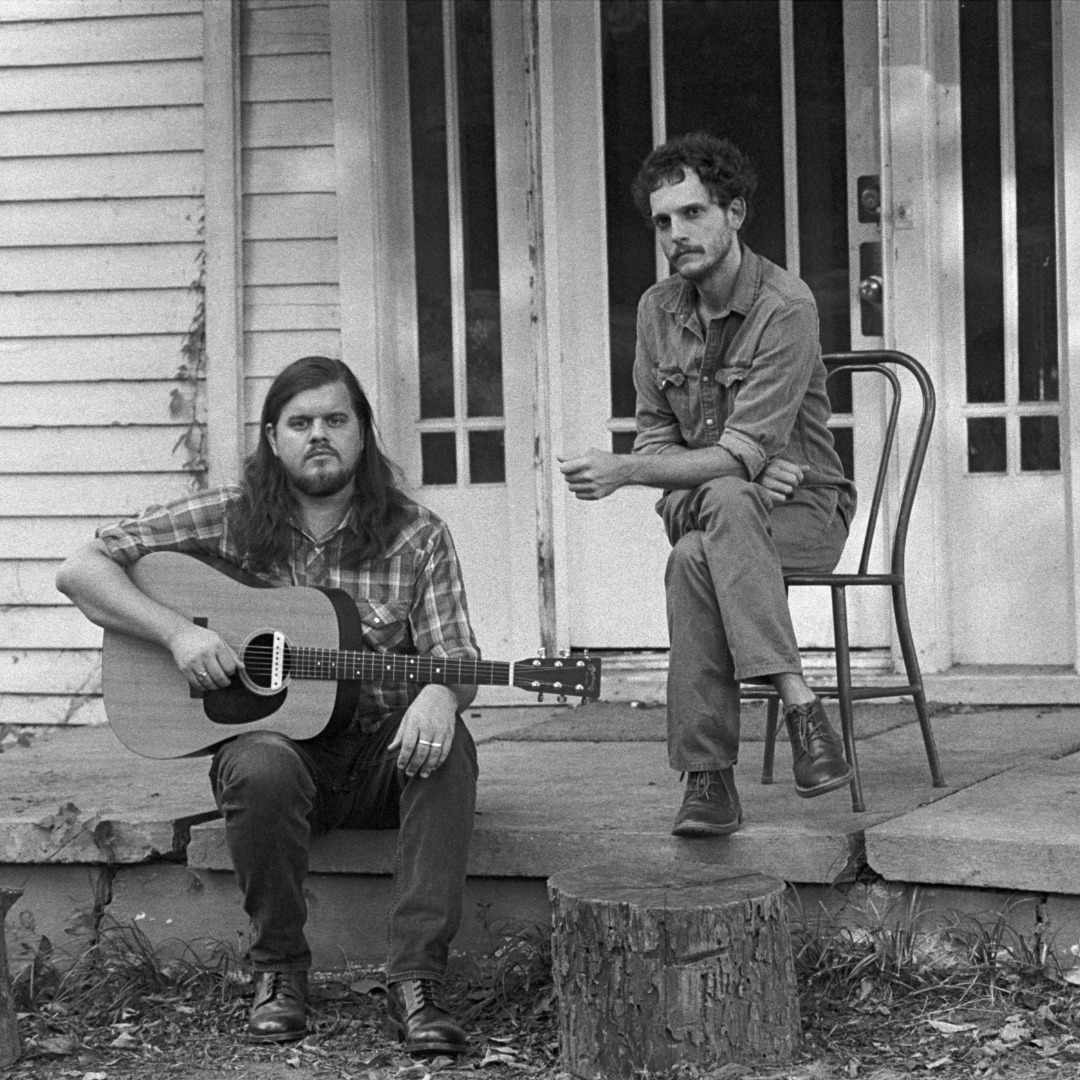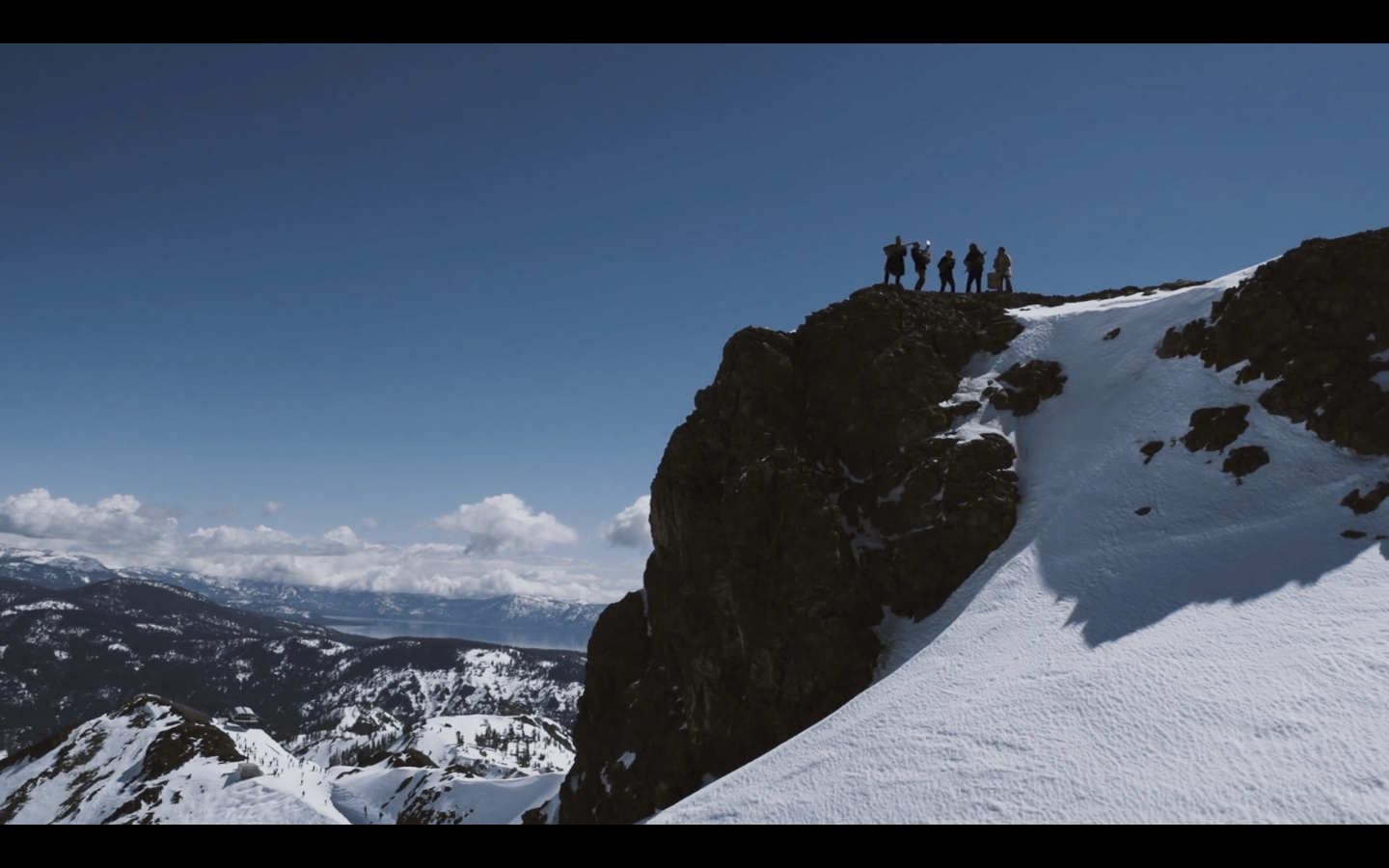Before she won NPR’s Tiny Desk Contest, Gaelynn Lea was a member of the music community in northern Minnesota, where she had been playing and performing for most of her life. She never thought of her music or her songwriting as an activist statement; she simply focused on her haunting fiddle — deftly and creatively orchestrating ethereal playback with a loop pedal — and her timeless voice, using her lyrics to shape the amorphous tracks she had created. The stark, raw duet of strings and vocal hearkens back to folk and vernacular sounds from the hollers of Appalachia and the hills of Ireland and Scotland. But, as her style evolved, she realized it was something distinct and new.
Her unexpected sonic aesthetic wasn’t all that surprised the viewers of her Tiny Desk Concert, though. Lea has a congenital disability called Osteogenesis imperfecta, or brittle bone disease. She uses a wheelchair and holds the violin vertically like a cello, while operating her loop station with her foot. In a split second, as the Tiny Desk title card faded from the video, revealing the the artist who was creating those mystic-sounding bow strokes, one by one, the presuppositions of 1.5 million people were shattered.
What does a musician look like? What do they sound like? How does someone’s identity or background impact their art? Most of the time, our automatic, subconscious answers to these questions go unchallenged, existing happily corroborated by the largely homogenous media that we incessantly consume. It takes someone like Lea to remind us that we are taking the identities of creators for granted and, in doing so, we are further marginalizing artists who exist on the fringes of our communities, artistic and otherwise.
Now on the cusp of releasing her third album, Lea has embraced the positive aspects of those shattered expectations, using her visibility to champion disability rights and causes. But she refuses to be taken for a novelty or utilized as a token. Like any of us, she does not reduce her entire perspective to one facet of her identity. And, like all musicians, at the end of the day, she wants it to just be about the music.
I wonder what it’s like making and performing music that’s constantly shocking people out of their preconceived notions?
It happens on two levels. Obviously, part of the reason is that it isn’t that common to see someone with a disability playing the way I play the violin. My goal is to keep doing it so that it’s not something that’s so uncommon. In terms of the actual music I play, what I really like is a lot of people come to the show and don’t really get it. Unless they really understand looping — it’s done pretty subtle-y — they just have to suspend disbelief and listen, since they don’t really know how it’s happening. It’s kind of a fun experiment. I guess I like to try a sneak attack, in terms of the layers. I don’t want it to be super obvious when [the loops] come in and out. So yeah, it’s kind of two-fold.
Were there specific artists that gave you the idea to loop with a fiddle?
In some ways, yes. I think what was exciting for me and maybe why I don’t have a great answer for that question is that, when I realized you could loop fiddle music and make it sound orchestral, I was like, “I don’t think I’ve seen that before.” It probably exists, I’m sure that it does, but I, personally, didn’t know if I had ever heard it. When I started writing my own songs and trying to find ways to loop them, that was kind of out of necessity, because I don’t play guitar.
Every time I write a song, I don’t know if I’m going to be able to loop it or not. I just have to figure it out later. I write it first, then I’m like, “Okay. Is there a way to do this with a few chords and ambient loops.” What’s nice about this new album [with a full band] is that some of the songs, I can’t loop, but I don’t have to play them by myself. It’s neat to have a full band and to be able to explore new sounds. Definitely, at the beginning, the way I laid down the layers had to do with necessity.
One of my common questions for this column is about how and why each interviewee’s identity filters into their art, but people of color, or people with disabilities, or queer people — anyone who visibly doesn’t fit into any given societal norm — don’t really have the privilege of choosing how much or how little of themselves comes across in their music. Just being themselves is a political act. Do you feel that, as a performer?
I do, and it’s something I’m still figuring out. I’ve been playing for 24 years and I’ve been performing for 10. But, before I won the Tiny Desk Contest, I was just performing in my local community, so it didn’t really feel like that was a statement, because everybody knew me. When the Tiny Desk happened, all of a sudden I was like, “Holy cow. This is something that people are going to associate with me.” So I decided to try to figure out a way to balance it for myself. I definitely want to talk about disability rights issues — for the new album, I even wrote a song about the disability rights movement. Usually I don’t write explicitly about disability, because it’s not what happens, it’s not what comes out. I think the current political situation probably spurred some thoughts on it that needed to come out.
For me, I know that people are going to come in and have their own ideas and, hopefully, view me and my performance in a positive way. In terms of my actual show or the songs I write, I like to be able to choose when I talk about [disability], because I know, no matter what, just standing there is going to make people think. That’s an unavoidable thing and that’s good, I suppose, but I also just want to be seen as a musician, too. I realized I’m in a very privileged position to be able to talk about it, so when I can, when I think it fits, and I think it’s being used for the right reasons, I do like to connect my disability identity to the art and talk about what I think needs to change in our society.
How do you feel about that? I mean, I don’t really talk to anyone else [who faces this]. Do you have an answer on that?
I present very masculine, right up until I open my mouth. The way I talk and my mannerisms are pretty queer-coded, so I always do this cost/benefit analysis — and sometimes it’s subconscious — of how queer I present in any given situation based on how safe I feel in that situation and how vulnerable and how real I can be. You don’t realize you’re carrying that burden around until you’re in a situation where you don’t have it anymore.
Yeah!
When I’m able to sing my queer songs and not not worry about it, I realize that that is how it feels for every privileged person who gets up on stage and can just live their truth without actively thinking about it. I try to take that approach myself, but it’s so hard. And it’s so exhausting.
That’s the interesting thing because, listening to what you’re saying, I think we come from slightly different spots. I don’t feel unsafe, but I do feel that my story isn’t safe. There are some people who are more in line with me, who think [disability] is a natural part of the human experience. All of us are going to be disabled, at some point, if we live long enough. It’s not the biggest deal. Then there’s the other end of the spectrum where they’re like, “I don’t even know how I could live if I had a disability!” And, “I feel so bad for that person. What do I have to complain about? They have a disability and I don’t. I’m a whiner.”
Especially in interviews, I can’t force people to interpret this in a certain way. If I had a magic wand, I wouldn’t want people sitting there thinking, “Oh, man, I can’t believe someone with a disability can do this!” Because that doesn’t factor into my playing that much. I learned [to play] that way a long time ago. The whole “inspirational” idea, or pity, or whatever lens they’re viewing it from, I wish I could take that lens away.
It’s not like I wouldn’t want to talk about activism because, to me, we are so far behind. I don’t know how you feel about gay rights. I’m assuming you feel similarly.
Oh, yes.
There’s so much work to do, it would be silly for me not to talk about it. The one thing I do get weary of is realizing halfway through that someone is viewing me with a lens of pity rather than as a musician. That’s unfortunate because I’ll be thinking we’re having a regular conversation and then I read an article later and it’s like, “She didn’t think she’d be able to do anything with her life until she found music.” And I’m like, “Oh, my God. That is not what I said!”
That’s so shitty!
It’s really shitty! That happens a lot, too. That’s the kind of thing that bothers me. I try to give people, especially random people, the benefit of the doubt. What bothers me about journalism is that, obviously, they think about what they’re about to write beforehand. It’s just sad that there’s not more education on disability. You would never write a story like that, if you even had a day’s worth of education on the appropriate ways to talk about it.
It’s kind of a final frontier of intersectionality in this inclusion movement coming through the bluegrass, folk, and Americana scenes. People with disabilities are largely forgotten in that picture.
I know. Yep.
It’s everywhere. If you go down a list of showcase venues at a conference, how many are ADA compliant? Maybe one. Or festivals are often not ADA compliant. Promoters, festivals, venues, artists, conventions … it seems like every wing of the industry overlooks the importance of representation of people with disabilities.
I think there are two problems. One of them is definitely lack of awareness. I was on a panel with some festival organizers talking about accessibility once, and I was saying, “We need to represent artists with disabilities on festival lineups. I want to be able to see people with disabilities on the bill.” They were like, “Of course, we wouldn’t reject someone because they have a disability. Of course, we would accommodate them.” I said, “No. You need to seek them out. If someone had an all-male, white lineup, they would be raked over the coals, but nobody even notices if there’s no one with a disability on the lineup.”
Exactly.
I could see the light bulb go off. It was an important moment for me, realizing that they really just don’t know. That’s why I do so much speaking about it, to be honest. If they can’t even hear it, they won’t change. If they don’t know it’s a problem — and I wish they did — someone needs to tell them that it is.
I have such a hard time describing that feeling when you see yourself represented on stage. It’s more common now than it has been, for me, for LGBTQ people, but when you have that feeling, “This person gets it. This person knows what I go through,” it means the world. But most people can’t get out of their own heads to realize this is the key.
Yeah. [It’s the key to] social justice as a whole, actually. When are we going to make changes unless we realize there are people who need change? One thing that’s unique to people with disabilities that might be different for other people, like LGBTQ, is that it costs money, sometimes, to fix the things that are wrong. That is a frustrating thing.
There are creative ways that it wouldn’t cost money that people aren’t talking about. Obviously, it would cost a lot of money to build an elevator or to build a ramp. This happens a lot at small venues. Usually bigger venues can find ways to accommodate me, but the small ones are like, “Man, I wish we had enough money to build a ramp.” For a small room, with a 50-person capacity, why not just take the stage down? Is it really that big of a deal for performers to be four inches off the ground?
If you can’t afford to be accessible, you got to find a way to do it for free. It’s not like there’s suddenly no responsibility to modify at all. People aren’t thinking outside the box enough. Maybe, if you want to host a show, but your venue isn’t accessible, partner with a venue that is accessible and do it together. There have to be better answers than what we’re seeing most of the time.
So before we close, I want to ask you about looking ahead — what are you excited for in 2018?
I’m excited because I’ve been writing more than I have been in the past and playing with this [upcoming record’s] band. I’m really excited for people to hear them. I have a lot of respect for everyone I’m playing with on this project. We’re all from Minnesota, and a couple of them grew up in the same town as me. It’s a lot of fun for me. I love looping and, obviously, I’m going to continue performing that way, but it’s also fun to have this other branch where I don’t have to think about the loops. I can just sing and be really present with the music.
I’m really excited for the disability rights song, I recently played in San Francisco, and a ton of people from the disability community came out. It was kind of the first time a show like that had happened. I got to sing that song for people, and it was exactly what you’re saying, seeing someone on stage that gets you. It was neat to connect with the audience in a way that wouldn’t happen if they were able-bodied. I’m excited to release that and hopefully keep connecting with other artists and activists. It’s going to be fun to see where this new album goes.






